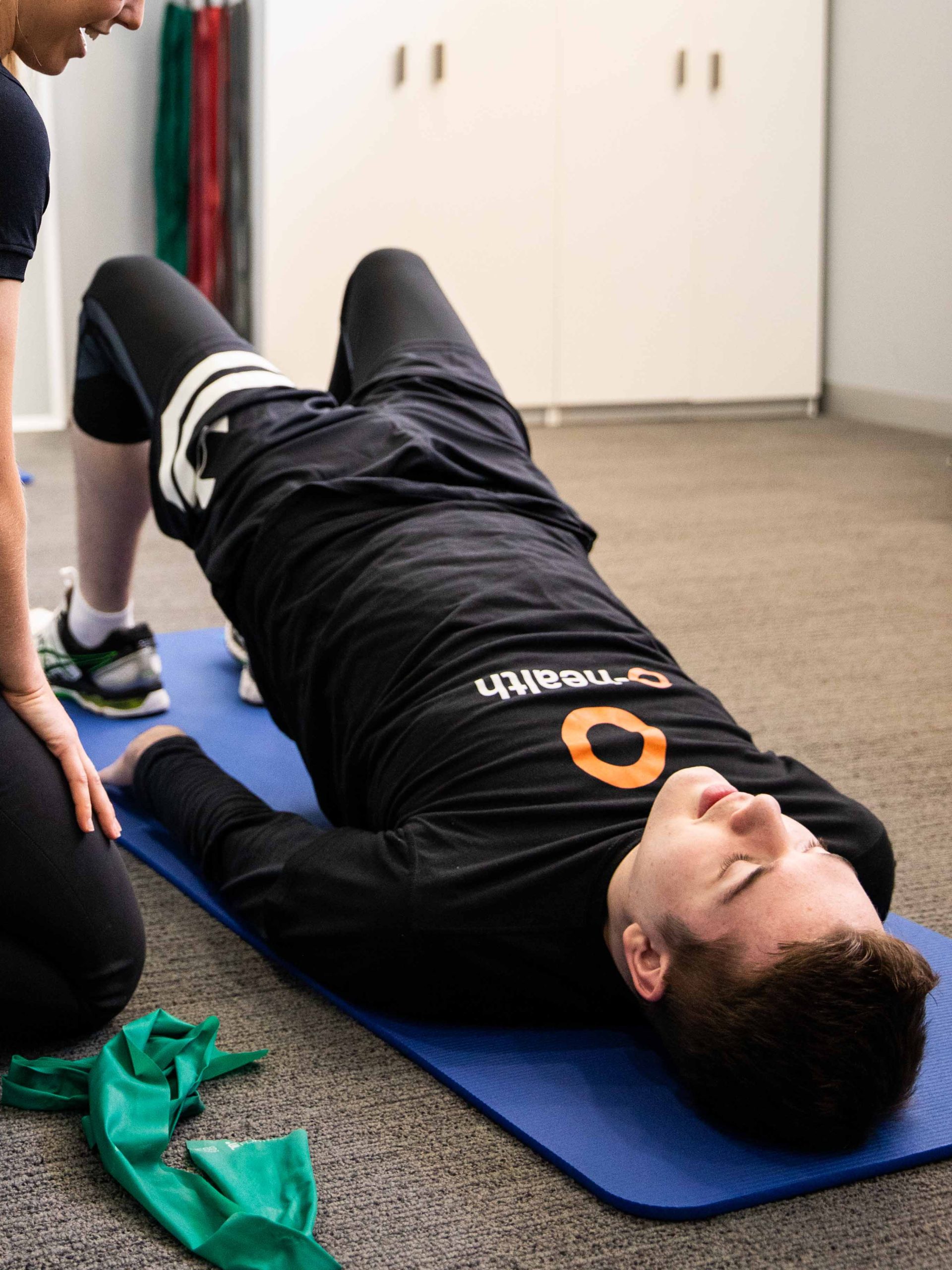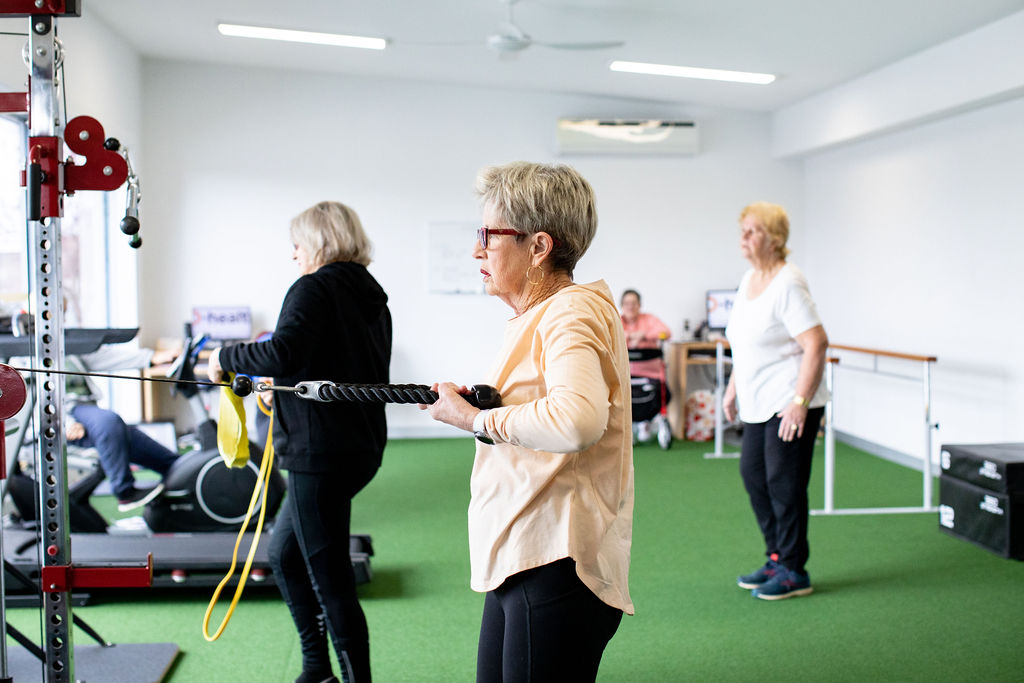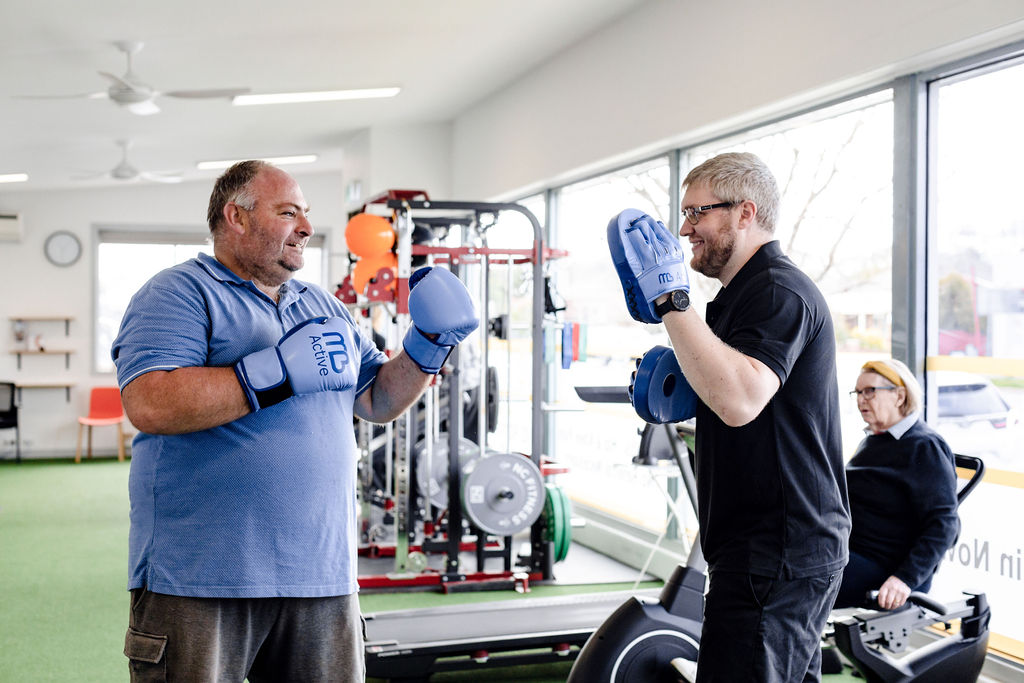 What is an Exercise Physiologist?
What is an Exercise Physiologist?
Ever heard of an Exercise Physiologist (EP) and wondered what they do?
It’s a question we hear a lot! At O-health, our Exercise Physiologists are here to support people in moving better, feeling better, and living better—no matter their starting point. Whether you’re recovering from an injury, managing a health condition, or simply looking to get more active safely, EPs provide expert guidance to help you achieve your goals.
What Does an Exercise Physiologist Do?
Exercise Physiologists are health professionals with advanced training in how the body responds to exercise. They use exercise as medicine to restore your physical and mental health. Exercise (along with diet and sleep) is the cornerstone of a healthy mind and body- EP’s are experts at ensuring that it is appropriate, effective and fun!
They specialise in using exercise to:
- Manage or prevent chronic health conditions.
- Rehabilitate injuries and reduce pain.
- Improve strength, mobility, and overall health.
Research shows that exercise is a powerful tool for managing conditions like diabetes, arthritis, and cardiovascular disease, often reducing the need for medication and improving quality of life (Exercise & Sports Science Australia, 2023).
At O-health, our Exercise Physiologists design personalised exercise programs tailored to your needs. Whether it’s strength training, mobility-focused exercises, or programs to build endurance, they’ll help you move in ways that are safe, effective, and enjoyable.
Who Can Benefit from Seeing an Exercise Physiologist?
EPs work with individuals managing a variety of conditions, including:
- Heart and lung conditions: Like high blood pressure, heart disease, or asthma.
- Injuries or chronic pain: Including back pain, arthritis, or recovery after surgery.
- Metabolic conditions: Like diabetes or challenges with weight management (AIHW, 2022).
- Neurological conditions: Such as stroke recovery, Parkinson’s disease, or multiple sclerosis.
- Disabilities: Providing safe and supportive ways to stay active.
Even if you’re not dealing with a specific condition, an EP can help you stay active and prevent future health issues. They’ll meet you where you are and guide you every step of the way.


How is an Exercise Physiologist Different from a Physiotherapist?
This is a common question! While both professionals are experts in movement and health, their focus areas are slightly different:
- Physiotherapists diagnose and treat injuries, illness and other health conditions using a wide variety of techniques and provide hands-on care.
- Exercise Physiologists focus on long-term management of health conditions and use exercise as their primary tool to improve your wellbeing (ESSA, 2023).
Think of it as teamwork: physiotherapists help with diagnosis, pain reduction, improvement in movement, while EPs guide you in maintaining and building your strength over time.
Do I Need a Referral to See an EP?
Good news: you don’t need a referral to see an EP privately. Many private health funds cover EP services, just like physiotherapy or osteopathy.
For other types of funding, here’s what to know:
- DVA or WorkCover: A GP referral is required.
- NDIS Participants: If you’re self-managed or plan-managed, you can book directly with us.
If you’re unsure about eligibility, give us a call, and we’ll help you navigate it.
How to Get Started
At O-health, we make it easy to begin your journey with Exercise Physiology. From your first appointment, we’ll:
- Understand Your Goals: Learn about your health, what’s important to you, and what you’d like to achieve.
- Create a Plan That Works for You: Whether you’re into walking, weights, or water-based exercises, we’ll build a program you feel comfortable with.
- Support You Along the Way: We’ll check in regularly, track your progress, and adjust as needed to keep you on track.
Ready to Feel Stronger and Move with Confidence?
Whether you’re looking to manage a condition, recover from injury, or simply feel better in your everyday life, our Exercise Physiologists are here to help.
Call us on 02 6021 2777 or book an appointment today. Let’s get moving—together!
References
- Exercise & Sports Science Australia (ESSA). (2023). About Exercise Physiology.
- Australian Institute of Health and Welfare (AIHW). (2022). Chronic disease and conditions: Overview. Retrieved from https://www.aihw.gov.au.
- Smith, C., & Burton, A. (2020). Exercise Physiology and Chronic Disease: Evidence-Based Practice. Journal of Allied Health Sciences, 45(3), 123-134. DOI: 10.1007/s10459-020-10019-4.